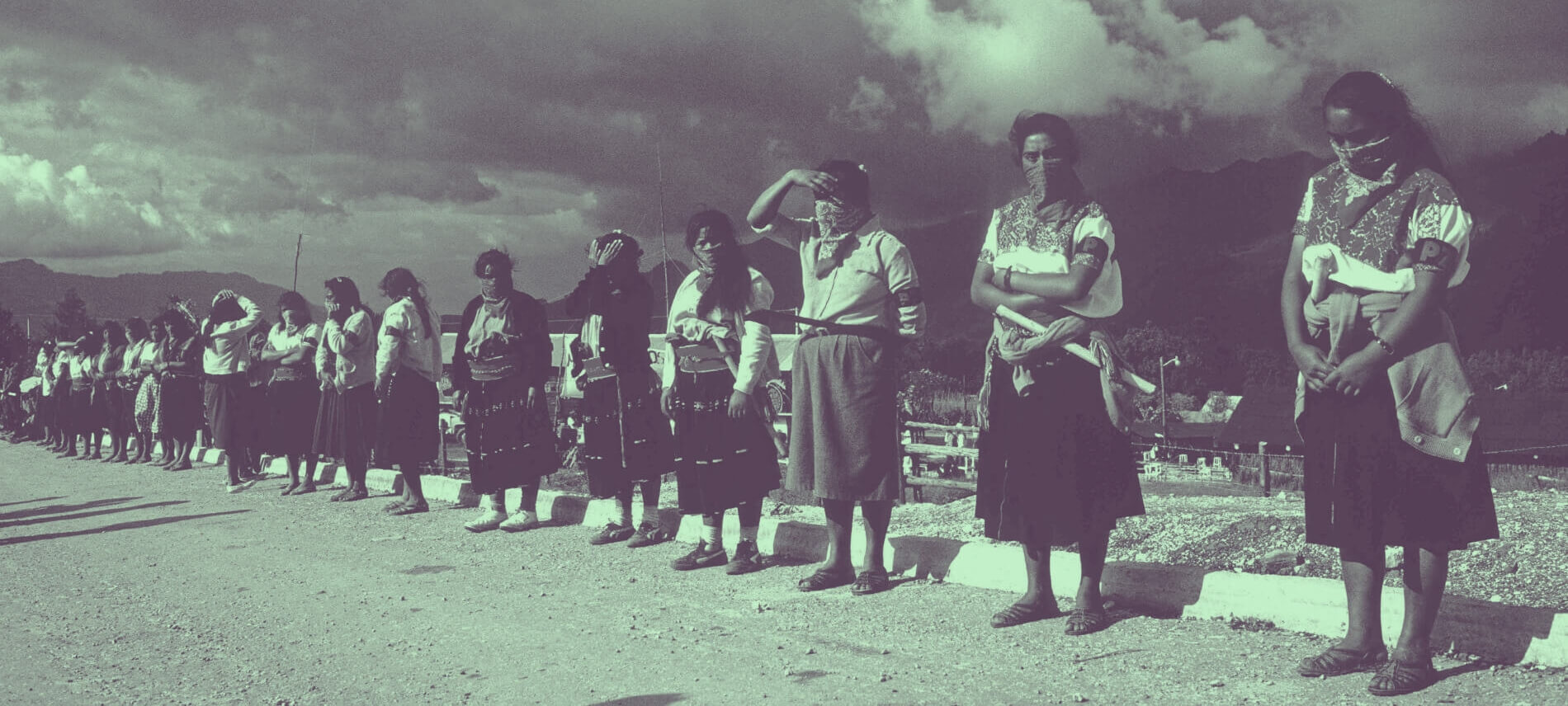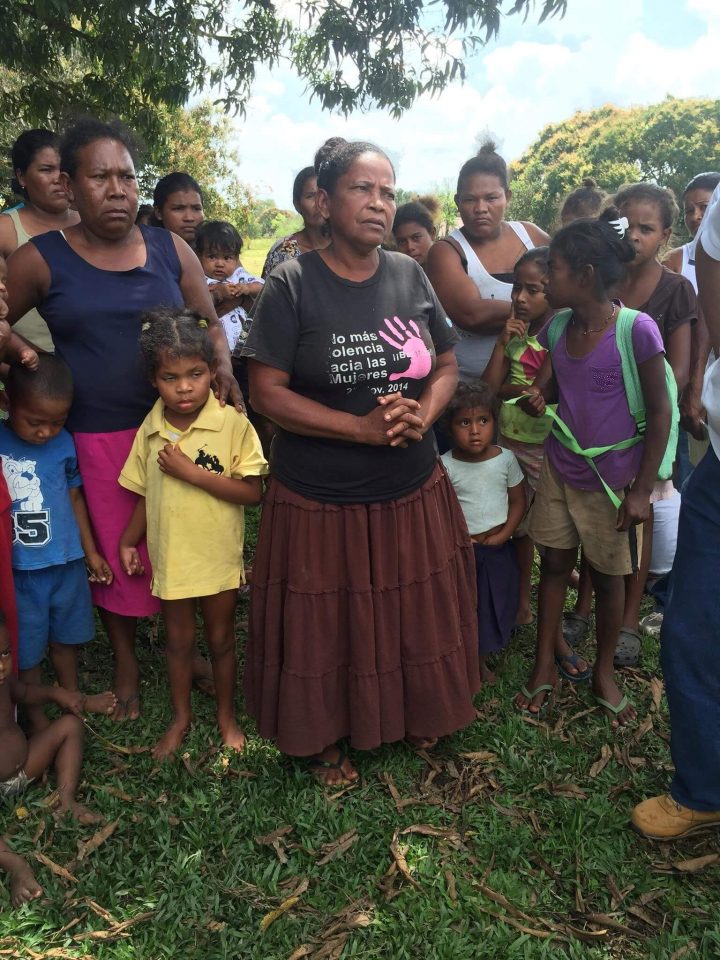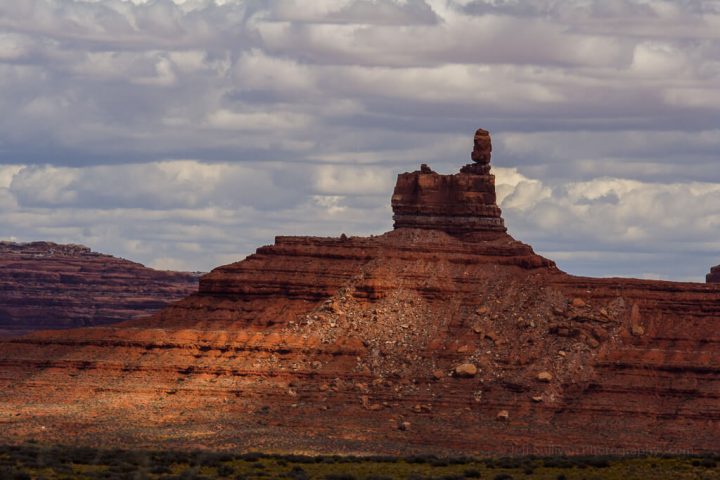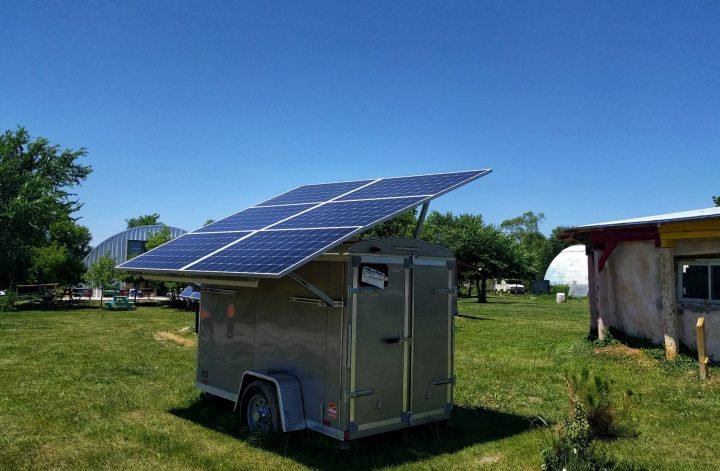
The Indigenous Rights Report is a weekly crash course on everything in the indigenous world.
Make this podcast happen! Support us on Patreon!

This is the Indigenous Rights Report for the week of September 28, 2019. In this week’s report:
- Amazon fires decreased in September, but crisis is far from over
- 3 killed in attack on Nicaragua Indigenous community
- US wants to block tribes from protecting historical and cultural areas on public lands
- Inquiry finds Indigenous peoples in Quebec are subject to widespread systemic discrimination
- Federal judge declines to dismiss Bears Ears lawsuit
- Trudeau government decides to fight $2 billion compensation ruling over failures in First Nations child services
- Violence on Amazonian border puts Indigenous at risk, say church workers
- Tribal coastal resiliency act gets approved by US House Committee
- Canada’s Conservative Party considers Indigenous peoples ‘a hindrance, a problem’
- Rising seas threaten hundreds of Native American heritage sites along Florida’s Gulf Coast
- Indigenous sacred trees protesters compromise on controversial highway project
- An App is helping to save Indigenous Alaskan language from extinction
- Indigenous Mexican corn threatened by U.S. biopiracy
- As legal fight over India forest rights drags, millions more risk eviction
- Canada reveals names of 2,800 victims of residential schools
- South Asian herders fight for right to roam as pressure to settle grows
- Residents of the Tilzapote community protest against federal government delegate
- Indigenous actress Aparicio named UNESCO ambassador
- Native Americans go solar with goal of energy independence
- Custom, caste system deny land rights to Asian women, Indigenous people
- Alaskan gives United Nations Indigenous perspective on threats to Arctic fisheries
- ACLU announces first Indigenous Justice Organizer
- British Government ‘expresses regret’ for Māori killed after James Cook’s arrival in New Zealand
The number of fires in the Amazon in September decreased, according to the latest data from the Brazilian National Institute for Space Research (INPE). But the crisis is far from over: while the temporary reduction in the number of fires can be attributed to Brazil’s firefighting response, deforestation continues to mount in preparation for more fires.
Amazon Watch Program Director Christian Poirier said that “We need a real commitment from Bolsonaro’s government to protect Brazil’s forests and their Indigenous and traditional communities, who are the true guardians of the Amazon. Bolsonaro has promised ‘zero tolerance’ for explosive deforestation and subsequent widespread arson; however, his policies and rhetoric have actually encouraged such crimes.”
Nicaraguan authorities say an attack on an Indigenous Miskito community of Masmalaya has left houses and a church torched and three people dead.

Surrounded by community members, a Miskito woman stands with her daughter – in the yellow shirt – who was shot in the head by a ‘colonos’. Photo: Courtney Parker, Intercontinental Cry, 2016
In recent years, residents of Indigenous communities along the northern Caribbean coast have reported numerous incursions by outsiders who take over land and begin cutting trees. In response to previous attacks, the Inter-American Commission on Human Rights called for protective measures and asked the government to protect the Indigenous residents.
The Shoshone-Bannock Tribes sounded the alarm to all Americans on the National Park Service’s March 1 proposed rule that would eliminate the ability of tribes to preserve and protect historical and cultural areas on public lands. The National Park Service, through its proposed rule would essentially assume the role of the U.S. Congress and amend the National Historic Preservation Act to bar tribes (and everyone else) from initiating a nomination or an eligibility determination to list a property on public lands on the National Register of Historic Places and alter the law so that only federal agencies could initiate a nomination or eligibility determination to the National Register. Further, the proposed rule would eliminate the ability of tribes and other parties to appeal a federal agency’s failure to nominate.
The National Park Service issued this proposed rule without government-to-government consultations with tribes in contradiction to executive orders and its own policies. It is now rushing to finalize the rule as quickly as possible for industry purposes.
A judicial inquiry has concluded Indigenous peoples are the victims of systemic discrimination in Quebec – a finding that prompted Premier François Legault to abandon his long-standing contention that systemic racism does not exist in the province. Retired Superior Court judge Jacques Viens delivered the report after an 18-month examination of Indigenous people’s interactions with matters that often fall under provincial jurisdiction, including police, corrections, the justice system, health, education, social services and youth protection.
While many Indigenous leaders welcomed the broad condemnation, conclusions and recommendations, they also criticized the judge for dedicating little space to the allegations of police abuse that triggered the inquiry. “We’ve got a bit of lassitude when it comes to apologies without concrete action,” said Ghislain Picard, Chief of the Assembly of First Nations of Quebec-Labrador.
A U.S. District Court Judge has turned down an attempt by the Trump administration to dismiss legal challenges to its 2017 decision to cut the size of Bear Ears National Monument in southern Utah. The ruling essentially means legal actions brought by Utah’s five American Indian tribes and several environmental, business and academic groups over the monument can proceed for now. Supporters of the original monument have warned those management plans could jeopardize the lands by unduly favoring development.

Bears Ears National Monument. Photo: Jeffrey Sullivan/flickr (BY-NC)
Trump’s proclamation reduced Bears Ears — created by former President Barack Obama in 2016 — from an original 1.35 million acres to 201,876 acres. Critics say the move has usurped sacred tribal lands and authority while threatening treasured landscapes and a host of archaeological and historic resources.
Canada’s Trudeau government is challenging a landmark human rights ruling to compensate apprehended First Nations children harmed by the on-reserve child welfare system. The Attorney General of Canada filed an application for a judicial review and for a stay of the ruling — just two weeks before the federal election and days before the Oct. 7 deadline for filing an appeal. The Canadian Human Rights Tribunal ordered the federal government on Sept. 6 to pay $40,000 — the maximum allowed under the Canadian Human Rights Act — to each child taken from homes and communities under the on-reserve child welfare system from Jan. 1, 2006, to a date to be determined by the tribunal.
“They’re asking for a full quashing of the tribunal’s order,” said Cindy Blackstock, the executive director of the First Nations Child and Family Caring Society, which is one of the organizations that brought forward the initial complaint to the tribunal. “It’s really disappointing. It really suggests to me that Canada continues to not accept responsibility for its conduct as resulting in the unnecessary family separations of First Nations children in levels far higher than at residential schools and, in some cases, the deaths of children.”
On the Amazon border shared by Brazil and Peru, a series of violent events has placed isolated Indigenous peoples at risk, church workers say. The Union of Indigenous Peoples has reported incursions by loggers, miners, fishermen and farmers who enter the territory illegally. The group said evangelical missionaries also entered the area without authorization. The organization prohibits proselytizing by church workers within the territory. The incursions bring the risk of violent contact between outsiders and Indigenous peoples living in the reserve. There is also the possibility that outsiders will negotiate with Indigenous villagers to engage in illegal activities like logging or mining.
The group blamed the lack of security in the territory on government policies that ease protection for Indigenous rights and called on the administration of President Jair Bolsonaro to guarantee Indigenous peoples’ legal rights to their territories.
The US House Committee on Natural Resources unanimously approved H.R. 729, the Tribal Coastal Resiliency Act, alongside nine other bills related to climate change. First introduced in 2015 by Derek Kilmer (D-Wash.), the Tribal Coastal Resiliency Act would provide Native American tribes in coastal areas with resources to stabilize coastal shorelines and restore or preserve areas with ecological, cultural, historic, sacred, or esthetic significance. It would also help them take preventive measures to ensure the safety of their members and protect their facilities before an emergency.
That makes the bill incredibly important to tribes like the Quileute Nation village of La Push, the Hoh Tribe, the Quinault Indian Nation and several coastal communities in Alaska that have already begun the process of moving to higher ground. If passed into law, H.R. 729 would provide $5 million a year for the National Oceanic and Atmospheric Administration (NOAA) to issue grants directly to Native American tribes in need.
Canada’s Conservative party appears ready to take a hostile approach to Indigenous Rights. Conservative part leader Andrew Scheer recently said that “We cannot create a system in this country where one group of individuals, one Indigenous community, can hold hostage large projects that employ so many Indigenous Canadians”. Grand Chief Arlen Dumas of the Assembly of Manitoba Chiefs criticized this statement saying that “It is incredibly disappointing that one of the party leaders who wants to represent Canada holds this discriminatory view and outlook of UNDRIP and of First Nations people. Citizens of this country should be very wary of supporting any party candidate who does not respect and understand the sovereign and Treaty rights of First Nations people in Manitoba or Canada.”
The Conservatives have only five Indigenous candidates, including Leona Aglukkaq, who lost her Nunavut seat in 2015 after being in office for two terms. The Conservatives fare poorly in the 2015 election, getting the least amount of on-reserve support among the four major parties.
Florida’s archaeological resources face significant threats due to sea level rise driven by climate change. These places literally embody human lives, and are among the only records of prehistoric Indigenous peoples left in what is now America. The genocide of these oral historical and literate societies, native to North, South and Central America, makes it even more important to preserve their ancient sites. Between the years 1500 and 1850, 2.5 million Europeans migrated to the New World. As a consequence of their arrival, 50 million Indigenous people died from disease, massacres and slavery.
At present, 1,539 archaeological sites are located at or below sea level in Florida. By A.D. 2100 up to 6,820 will become submerged by sea level rise. According to a new U.N. report, global sea levels could increase by over 3 feet by the year 2100.
Construction will resume on a controversial Victorian highway upgrade amid an ongoing court case around protecting sacred, Indigenous birthing trees. The work will start on duplicating a 3.8km stretch of the Western Highway in the coming weeks after a truce between the state government and some traditional owners. The design of the road was realigned to save 15 ancient trees from being knocked down. Protesters known as the Djab Wurrung Embassy have welcomed the changes and said that it was a least-invasive and cheaper alternative to the original design. However, the rest of the duplication works will have to wait as traditional owner protesters challenge a federal government decision to not declare heritage protection for the trees, where women would go to give birth.
Construction has been delayed by activists camped at the site since June 2018.
An Alaskan Indigenous community is saving their language and heritage on the brink of extinction with the help of Māori technology company Kiwa Digital. Kiwa Digital and the Native Village of Afognak have launched a new app Katurlita! – Let’s All Gather to communicate the importance, resilience and richness of their unique culture and heritage. The app provides information on history, places, language, values, cultural knowledge and traditional arts while using audio, text, video and song. Native Village of Afognak tribal administrator JJ Orloff says the goal is to bring the expertise, knowledge and sensitivity of their elders into the digital age.
Members of the Native Village are Alutiiq, the Indigenous peoples of the Kodiak Island Archipelago in the Gulf of Alaska who have inhabited their traditional lands for over 7,500 years. Their language is one of 20 Alaskan languages officially identified as at risk of extinction.
Civil society and agricultural groups that make up the State Space in Defense of Oaxaca’s Native Corn reported that American scientists committed biopiracy, between 2006 and 2015, with the genetic characteristics of olotón corn, which was subtracted from the Mixe community of Totontepec. The scientists of the University of California and the University of Wisconsin-Madison who are working for the company Mars Inc. requested to patent the genetic characteristics derived from this corn species called “olotón,” the existence of which is documented since the 1950s in Guatemala and Mexico.
The State Space in Defense of Oaxaca’s Native Corn demanded the Mexican government stop pretending to support agriculture and to leave decisions on the production of their food on the hands of Indigenous peoples and farmers.
Even more Indigenous peoples could face eviction in India after states stopped processing new land claims under a law that is being challenged in the country’s highest court, land and human rights advocates warned. Earlier this year, India’s Supreme Court stayed its ruling that ordered the eviction of approximately 2 million Indigenous peoples whose land claims were rejected, and directed 21 states to file affidavits with details on how they had processed claims. The FRA, passed in 2006, aimed to improve their lives by recognizing the right of at least 150 million people to inhabit and live off about 40 million hectares of forest land. But states have been slow to implement the law, and more than half the land claims were rejected, often on flimsy grounds, Indigenous activists said. The government’s draft National Forest Policy 2018 proposes to give forest officials more power against encroachers, and earmarks more land for reforestation, making forest dwellers vulnerable to evictions, according to land rights groups. If enacted, the policy would make the FRA largely ineffective, land activists said.
A nationwide rally is planned for November 17, ahead of the next FRA court hearing on November 26, against the proposed forest policy and to demand the government supports the FRA, according to human rights group Campaign for Survival and Dignity (CSD). India’s 104 million tribal people – also known as Adivasis, or “original inhabitants” – make up less than 10% of the country’s population, and are among its most impoverished.
The National Centre for Truth and Reconciliation, in partnership with Aboriginal People’s Television Network, unveiled a national memorial register with the names of 2,800 Indigenous children who died in Canadian residential schools. All names were inscribed on a red scroll, which stretched 50 metres (164 feet).
It took more than a decade for researchers to identify nearly 3,000 children who died in Canada’s residential schools – compulsory boarding schools run by the government and religious authorities during the 19th and 20th centuries with the aim of forcibly assimilating Indigenous youth. The children were often not allowed to speak their language or to practice their culture, and many were mistreated and abused. The landmark Truth and Reconciliation report, released in 2015, said the policy amounted to “cultural genocide”. Many families were never notified, and the children were buried in unmarked graves. The Centre now hopes to collect the stories behind the names on the register.
South Asian pastoralists facing shrinking rangelands and a rise in conflicts over the right to roam must be allowed greater involvement in managing lands to help secure their survival, land experts said. Herders around the world are coming under pressure from governments to settle down and stop their livestock roaming, as they contend with land conflicts and the impact of climate change such as harsher droughts and desertification.
But in Central Asia, government policies that promote the management of lands by herder communities who roam them have helped secure grazing rights, restore degraded rangeland and reduce conflicts with settled communities, said Hijaba Ykhanbai of the Central Asia Pastoralists’ Alliance. “The Central Asian model is good for South Asia, as the challenges are the same: climate change, disruption of migration routes, conflicts and threats from mining,” he told a land forum in Udaipur city in India’s Rajasthan state.
Residents of the Tilzapote community protested against federal government delegate Nancy Ortiz and sub-delegate Gabriel Cerón because their community is being evicted from 300 hectares of land. Those affected said that on March 1, 2019, a construction group tried to start construction work in the coastal community belonging to Santa María Tonameca to build a real estate complex.
Recently, a group of Servants of the Nation of Oaxaca sent a letter addressed to the president of the Republic and to the head of the Ministry of Public Function (SFP), Irma Sandoval García, as well as to the coordinator of Social Programs of Morena, Gabriel García Hernández, to denounce “authoritarian, abusive, despotic and labor exploitation policy” by Nancy Ortiz Cabrera, state delegate of Development Programs in the entity.
The United Nations’ cultural agency UNESCO has appointed Mexican actress Yalitza Aparicio as its goodwill ambassador for Indigenous peoples. The 25-year-old actress made history as the first Indigenous performer nominated for a best actress honor at the Academy Awards this year for her performance in the film “Roma”, in which she speaks in an Indigenous language and in Spanish.
The Paris-based organization said that Aparicio, who was born in the poor Mexican state of Oaxaca, was chosen for her commitment to fight racism and advocate for gender equality and Indigenous rights. She will help the UNESCO’s work alongside Indigenous peoples across the world, including preserving their cultural heritage and environment knowledge and fighting for equal access to education.
The Red Cloud Renewable Energy Centre in South Dakota’s Pine Ridge Reservation, hopes to one day supply all 562 federally recognized tribes in the US, with cheap electricity from solar farms and panel-mounted, mobile trailer power banks. With poverty levels and infrastructure on Native American reservations at developing world standards, the cost of electricity disproportionately affects Native communities in America, many of whom live on isolated prairies which further contributes to the cost of electricity delivery. Then there’s the poor quality of housing. It means that not only are residents faced with high charges just to get electricity to their doors, keeping their homes warm makes for cripplingly expensive heating bills.

One of the portable solar trailers that Red Cloud brought to Standing Rock. Photo by Saul Elbein
Red Cloud started manufacturing solar products in 2003 and has since created 13 jobs on a reservation where unemployment stands at between 80 and 90 per cent. He says he works with 37 other federally recognized tribes on residential clean energy and solar power. Red Cloud also helps with disseminating technical support and training on other reservations. “They can start stimulating the economies in their own communities,” he says. Red Cloud says nations and tribes around the US are excited by solar’s potential. “Energy sovereignty is important because as a nation, we can produce our own power.
Women, lower-caste and Indigenous peoples across Asia are failing to benefit from land reform laws because of custom and deep-rooted social biases, land rights activists said. Globally, Indigenous communities have legal rights to only 10% of land, according to Washington, D.C.-based advocacy group Rights and Resources Initiative. “Recognition of Indigenous lands has become increasingly difficult as commercial pressure on land grows, and land reforms fail to recognize how assets are controlled in households where women are excluded,” the executive director said.
A recent survey by ANGOC of eight Asian countries including the Philippines, India and Bangladesh, found land reform laws that recognized Indigenous rights and women’s rights were not implemented in full, and that land had not been redistributed.
For the first time, a branch of the United Nations is asking Indigenous peoples to share their traditional knowledge about the evolution of Arctic fisheries. The United Nation’s Food and Agriculture Organization (FAO) held a seminar on the topic in Rome. Dalee Sambo Dorough, Ph.D., a former political science professor at UAA and chair of the Inuit Circumpolar Council (ICC) participated in the meeting and said that “The preamble of that declaration actually talks about the impact of climate change and the various different threats to the livelihood of Arctic Indigenous peoples. I think it’s quite significant that we were able to ensure that our approach, our concerns, our interests were registered with the FAO.”
An intergovernmental panel at the United Nation’s Climate Action Summit in New York released a special report on the impact’s of climate change on the ocean and cryosphere, with specific warnings about the effects of global warming on traditional food security in the Arctic. In addition, the report underscored the role of Indigenous knowledge in studying and addressing climate change, something NASA has highlighted as well.
One of the outcomes was a declaration that calls upon member states of the FAO to take further action to protect fisheries in the Arctic. The document is still pending final publication, following a public comment period.
Candi Brings Plenty has been hired as the first Indigenous Justice Organizer for the ACLU in the Dakotas. Candi Brings Plenty is a member of Oglala Sioux Tribe, and her Lakota name is Wakinyan Tunwanpi Iyoyanpa Win (Bright Lightning Woman).
The ACLU said it was inspired to create the position due to a new South Dakota law aimed at potential protests against the Keystone XL pipeline that the organization says violates the First Amendment. A federal judge temporarily blocked parts of the law from being enforced after the ACLU filed a lawsuit on behalf of Indigenous and environmental groups.
As New Zealand prepares to commemorate—and grapple with—the 250th anniversary since the British explorer James Cook made landing at the Tūranganui River on October 8, 1769, the British government has expressed its regret for the killings of nine Indigenous Māori in the wake of Cook’s arrival. The government did not go so far as to offer a formal apology.
The colonization of New Zealand by European settlers has had a wide-ranging and lasting impact on its Indigenous peoples, ushering in a loss of population, land, language and culture. But Clarke’s expression of regret focused on the disastrous first encounters that took place between Māori groups and Cook’s crew in the immediate aftermath of the Europeans’ arrival in New Zealand.
This is the Indigenous Rights Report.

Indigenous Peoples are putting their bodies on the line and it's our responsibility to make sure you know why. That takes time, expertise and resources - and we're up against a constant tide of misinformation and distorted coverage. By supporting IC you're empowering the kind of journalism we need, at the moment we need it most.